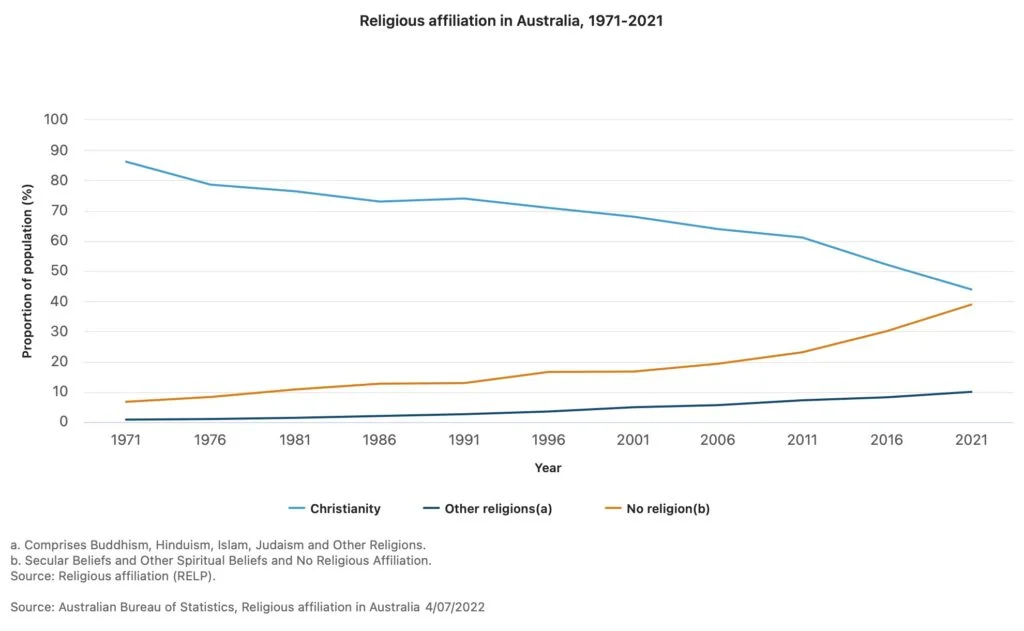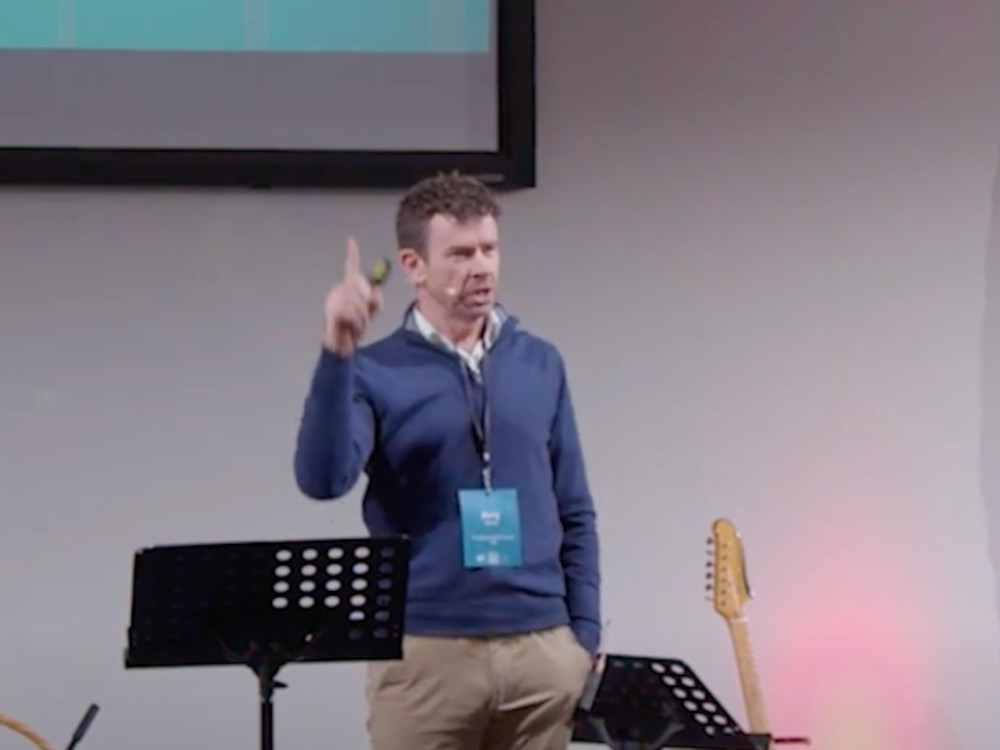The very name “Reach Australia” – the name of an influential church planting and leadership-training group – surely implies a realistic confidence that Australians can be reached with the Gospel. While some Christians will feel the times are really hard, a discussion about “the cultural moment” on the Reach Australia site is optimistic. That’s surely worth reporting.
Rory Shiner, senior pastor of Providence City Church in Perth, addressed Reach Australia’s national conference this week with a message to be optimistic in the face of past decline in Australian Christianity.
He began by saying he had spotted a pattern in books published about the church. He read some titles:
The Disappearing church,
That Was the Church that Was,
Losing My Religion,
How the West really lost God,
The Benedict Option: A Strategy for Christians in a Post-Christian Nation,
How to survive the zombie apocalypse,
Being the Bad Guys.,
The Death of Christian Britain.
“Is it just me, or is there a slight undertone of negativity in those titles? So here’s my thing. I reckon when historians come to write about our time, let’s call that 2011 to 2025, I think based on the evidence of our book titles, our podcasts, our conference themes, I think those historians might conclude that ours was an age in which there was a widespread perception that Christianity was under siege and that sharing the gospel was uniquely difficult.
“That’s my hypothesis, but notice I’m choosing my language very carefully. I’m claiming that future historians will conclude that there was a widespread perception that the churches were in trouble and that sharing the gospel was uniquely difficult.”
But he disputed that negative vibe.
“I want to argue … that whatever else you might say about our moment, I think you and I are living through an excellent time, a fruitful time for evangelism. I’m not arguing the 1 Timothy 4:2 ‘preach the gospel in season and out of season’. This isn’t the talk that says, doesn’t matter where things are good or bad going, keep preaching the gospel. That’s true. That’s not this talk.
“I’m arguing that … in a weird way we’re in season that we’re in an opportunity where we should notice that at the evangelistic edge of our ministry, we’re in a season of modest fruit and should be encouraged and should be spurred on by that…
“I go so far as to say I was born in 1975. I’d go so far as to say it’s the best evangelistic environment in my lifetime. That’s the thesis. Let’s see if I can persuade you of it as a good kind of Tim Keller kind of person. I think you’ve got to address the defeat beliefs. And so what are the defeat beliefs in the room?”
Shiner outlined two “defeat beliefs” The first was that the current cultural moment is uniquely hostile, and an “inside problem” that churches are not being effective evangelistically.
Using these Census stats, Shiner acknowledged the challenge of the rise of the “nones.”

Shiner acknowledges the thesis put forward by Steve McAlpine that there has been a real shift in how evangelical Christians are perceived now as “Being the Bad Guys.”
“I could take my pastor hat on and put on a kind of social scientist, social historian hat, and what we’re actually measuring is not so much a decline in church as a decline in mediating institutions over the past 20 or 30 years. I think we showed in this graph that what has actually happened is that there’s been a massive change in our trust in institutions and our ability to build and foster those kinds of communities, which we call mediating institutions, which are not the state, not private business groups.
“So things such as volunteer groups, community charity, sports clubs, volunteer societies, guild unions and so on. It’s that that’s fallen off a cliff, and it’s just worth knowing that it’s fallen off a cliff. So a sociologist would want to say to us, before you overly panic about church, we’re part of a situation that is bigger than that now. “
Shiner points out that at the same time, there’s been an uptick in church attendance, and that the lack of trust in mediating institutions and an increase in people coming to church can exist simultaneously. (The NCLS stats Shiner uses are reported in this The Other Cheek story,”Church attendance rises in the Great Southland.”) He fleshes this change out with on-the-ground examples.
“You talk to the guys, the AFES guys, not everywhere, not all over the place, but in lots of places they are telling us that 18 to 23-year-old who are coming to O days and evangelistic events that they’re experiencing one of the best evangelistic environments they’ve had in decades, [and I] also hear that story in churches as young people.”
Shiner said that because Christians are portrayed as being so bad in our society, contradicting that bad image works for evangelism.
“We’ve had inquirers say, oh, that was really interesting and good, and it’s so great that you guys aren’t fundamentalist. And I don’t have the heart to tell them we kind of are, but I think because we were happy to make eye contact with them and didn’t shout, they loved it. And that’s a pretty easy bar to jump. But see, two things can be true at once. So the AFES groups could easily get kicked off their campuses. That’s way more possible than 20 years ago. People in this room could end up before a judge or in jail for teaching what the Bible teaches about some moral topics, and there’s evangelistic fruit. Two things can be true at the same time.”
Addressing the second defeater belief, Shiner answers the often-asked question, “Where is the next Chappo?” referring to John Chapman, the famous evangelist in the Sydney Anglican diocese.
” I haven’t seen that guy, but what I have seen … I see a lot of really great course-based evangelism so far as to say it’s kind of a golden era of these incredible off the shelf tools, Introducing God, Christianity Explored, Simply Christianity, Taste and See, the God who speaks Life, are written for local churches, run in local churches so that you could go to almost any city in Australia and on almost any weeknight, there will be a home or a hall where non-Christians are being patiently taken through the gospel intelligently coherently in the context of warm Christian hospitality. “How was that? And there’s this added unintended consequence, which wasn’t true a lot of the time in the eighties and nineties, that the church that evangelises you is also the church that disciples you, the people that first taught you the gospel are the people who take you through the process.”
Perhaps Shiner could have also mentioned Alpha, which is often run these days in conservative evangelical churches in Australia.
Shiner’s talk is available on YouTube and the Reach Australia website.

